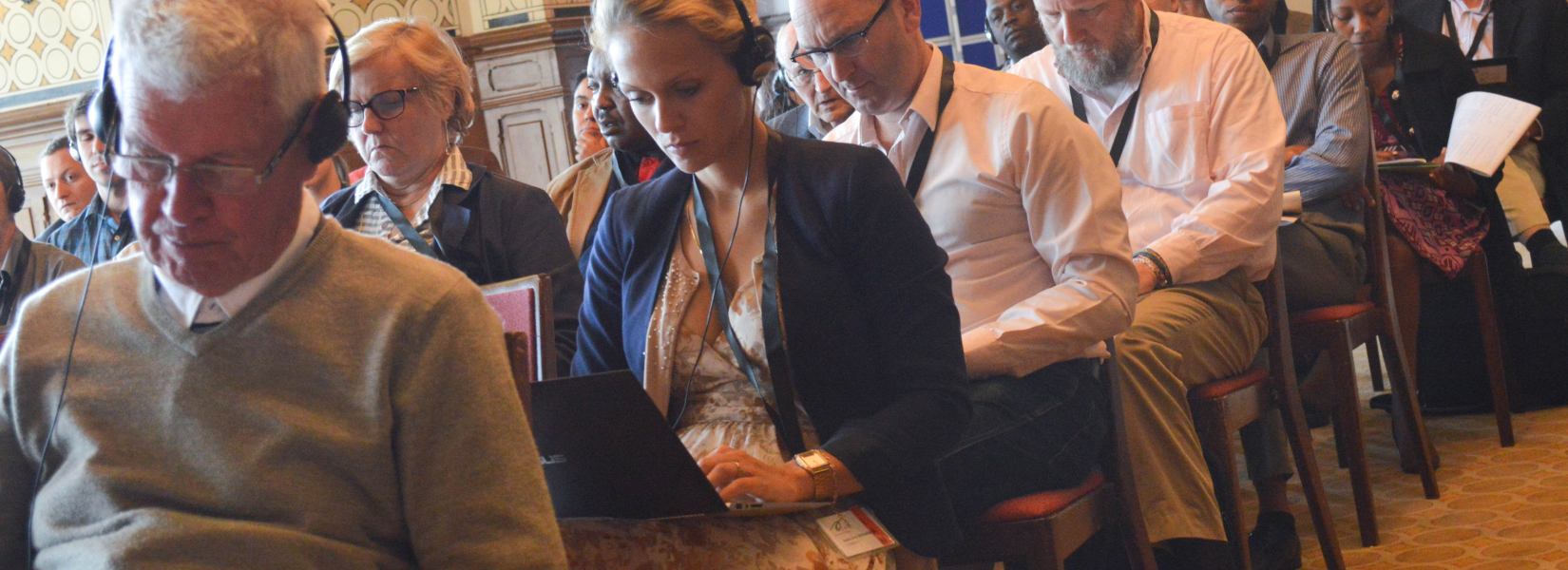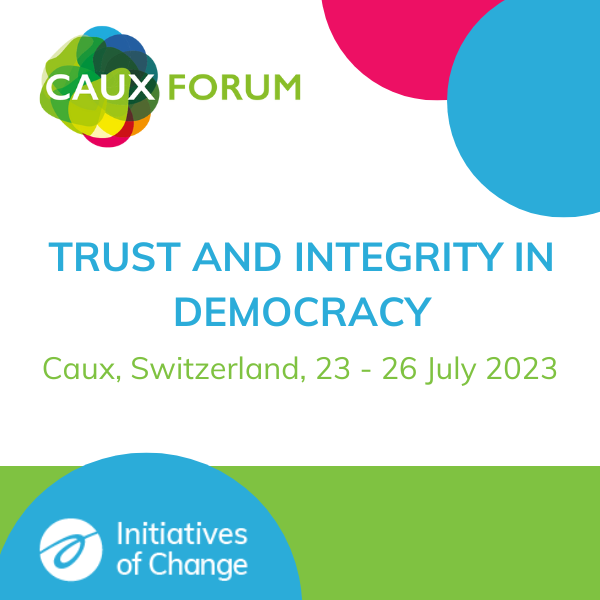CDLS 2015: Trade, public-private partnerships and how to feed 9 billion people
13/07/2015The third day of the “Caux Dialogue on Land and Security” focussed on the question of how we can ensure food is traded in a system that gives incentives to farmers to manage their land and water sustainably. Tony Allan, Emeritus Professor from the Department of Geography at King’s College, London, and first speaker to present, emphasised the role of the consumer driven market. He stated that ‘we need to understand the role played by the demand for cheap food. If we can get consumers to value farmer services, [….] we can achieve sustainably secure food supply chains’. Dominic Waughray, the Head of Environmental Initiative at the World Economic Forum, then moved the discussion to focus on the importance of public-private relationships in supply chains. These could allow countries to address the challenges, which appear alongside development.
A panel with Louise Baker, the Policy and Advocacy Coordinator of the UNCCD, Dr Muhammad Swazuri, the Chair of the Kenya Land Commission and Tony Colman, a water and trade specialist from the University of East Anglia later discussed these presentations. Dr Muhammad Swazuri contributed by highlighting the problem in which ‘multi-nationals and companies are coming to Africa to grow food, but not to feed Africa. The food is grown to take to the Middle East and other areas’. Tony Colman concluded the discussion on an optimistic note, stating that ‘farmers of the world must unite. We are weak individually, but together we can be strong’.
This plenary was followed by a special workshop. Martin Frick, Director of the Energy, Climate Change and Tenure Division of the FAO, first expressed to the participants that ‘250 million Americans could nourish another 250 million people, based on the current levels of food production’ to highlight fundamental problems in the supply chain. John Schluter, CEO of Café Africa International, returned to the question of public-private partnerships, and the significance of ‘trust and mutual accountability’, whilst Martin Keulertz, Research Fellow of the Environmental Governance Research Group, Humboldt University, Berlin, discussed how value could be attached to water.
 During the evening programme, environmental leaders and young participants engaged in a unique ‘fireside conversation’ dialogue. Luc Gnacadja, former UNCCD Executive Secretary, Julia Marton-Lefèvre, former IUCN Director-General and Geoffrey Lean, environment journalist from The Daily Telegraph formed a ‘sensational trio’ that responded to and challenged the audience. In the face of climate change and conflict, the questions of leadership, attitude and decision-making were primary concerns of the ‘fireside conversations’. Julia Marton-Lefèvre insisted that leaders must focus on ‘walking the talk’ to maintain close contact with the people. Luc Gnacadja emphasised that mainstreaming environmental issues was the only way to move forward on tackling global challenges. Geoffrey Lean closed the dialogue with optimism, as he believes that 2015 will be the year the environmental battle will be won, as both the Sustainable Development Goals and climate negotiations are being decided and coming to global attention.
During the evening programme, environmental leaders and young participants engaged in a unique ‘fireside conversation’ dialogue. Luc Gnacadja, former UNCCD Executive Secretary, Julia Marton-Lefèvre, former IUCN Director-General and Geoffrey Lean, environment journalist from The Daily Telegraph formed a ‘sensational trio’ that responded to and challenged the audience. In the face of climate change and conflict, the questions of leadership, attitude and decision-making were primary concerns of the ‘fireside conversations’. Julia Marton-Lefèvre insisted that leaders must focus on ‘walking the talk’ to maintain close contact with the people. Luc Gnacadja emphasised that mainstreaming environmental issues was the only way to move forward on tackling global challenges. Geoffrey Lean closed the dialogue with optimism, as he believes that 2015 will be the year the environmental battle will be won, as both the Sustainable Development Goals and climate negotiations are being decided and coming to global attention.































